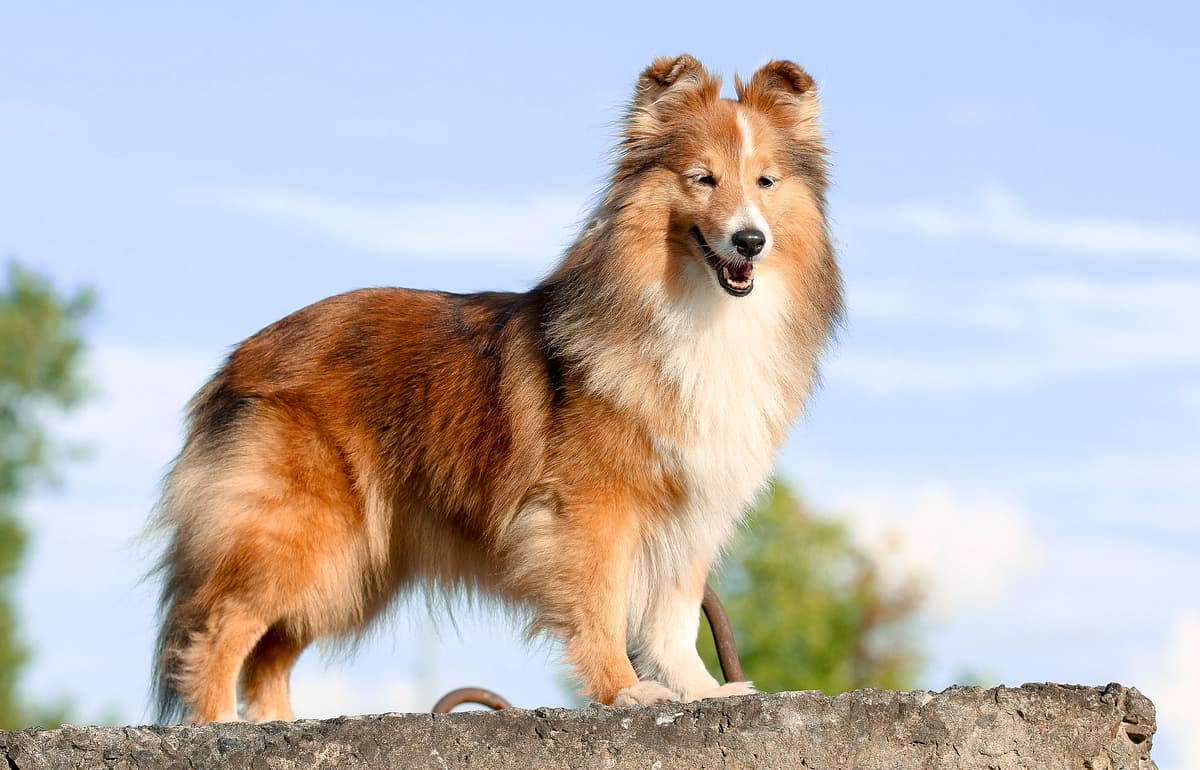Sheltie vs French Bulldog
Discover the differences between Sheltie and French Bulldog to make the best choice for your situation.
Try different breeds

Sheltie
Energetic, intelligent, and loyal, this breed thrives on companionship and mental stimulation. Agile and responsive, it excels in dog sports and makes a loving family friend.

French Bulldog
Compact, playful, and affectionate, this breed charms with its expressive face and easygoing personality. Ideal for city living, French Bulldogs make steadfast companions and loving family pets.
Quick comparison
Medium
9–11 kg
Double coat, dense undercoat
12–14 years
8–10 kg
High energy
Small
9–13 kg
Short, smooth
10–12 years
8–12 kg
Low activity needs
Personality & behavior
Compare the personality traits and behavioral characteristics of both breeds.
Sheltie
Affectionate with family, reserved with strangers
Learns commands and tasks quickly and easily
Needs regular activity and mental stimulation
Enjoys games and interactive activities daily
May struggle with changes or new environments
French Bulldog
Affectionate with people and enjoys companionship
Learns routines quickly but can be stubborn
Prefers short play sessions and moderate walks
Enjoys interactive games and gentle roughhousing
Comfortable in apartments and various environments
Care needs
Exercise, grooming, and daily care requirements
Sheltie
Collie eye anomaly, hypothyroidism
French Bulldog
Brachycephalic syndrome, skin allergies
Suitability
How well each breed fits different living situations and families
Sheltie
Good option
Intelligent and eager to please, Shelties respond well to consistent training and guidance.
Manageable with effort
Shelties can adapt to apartments if given enough daily exercise and mental stimulation.
Excellent match
High energy levels make Shelties well-suited for active, engaged households.
Generally suitable
Gentle and affectionate, but may be sensitive to loud or rough play from young children.
Gets along well
Typically sociable with other pets when properly introduced and socialized.
Prone to anxiety
Shelties can develop separation anxiety if left alone for long periods frequently.
French Bulldog
Great choice
Easygoing temperament and manageable size suit first-time owners well
Perfect fit
Quiet and compact, they adapt well to small apartments
Not ideal
They tire quickly and don’t match very active lifestyles
Highly suitable
Gentle and playful, they are patient with young children
Very friendly
Generally sociable and get along with other pets if introduced properly
Prone to anxiety
They dislike being left alone for long periods and may develop separation issues
Breed strengths
What each breed excels at and their best qualities
Sheltie
- Highly intelligent and responsive to training
- Loyal and affectionate with family members
- Excellent watchdog with strong alertness
- Good with children and other pets
- Agile and excels in canine sports
French Bulldog
- Affectionate with families and children
- Adaptable to apartment living
- Minimal grooming requirements
- Generally quiet and not prone to barking
- Strong loyalty to owners
Challenges & considerations
Potential challenges and considerations for each breed
Sheltie
- Prone to excessive barking without training
- Sensitive to loud noises and stress
- Needs daily exercise and mental stimulation
- Heavy seasonal shedding requires regular grooming
- Can be reserved or shy with strangers
French Bulldog
- Prone to breathing difficulties due to flat face
- Sensitive to extreme heat and cold
- May develop separation anxiety
- Stubborn during training sessions
- High risk of obesity without portion control
Ready to choose your perfect breed?
Learn more about each breed or compare other breeds to find the perfect match for your lifestyle.
Discover more helpful tools
Make use of our other free tools to get the most out of your pet experience
